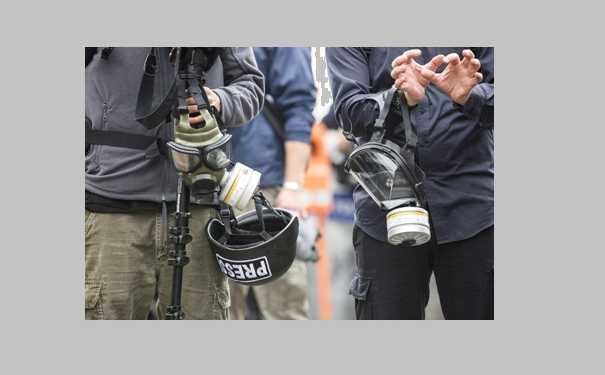Of all the people with sensitive information to protect, journalists have perhaps the greatest need to keep it confidential. Their phones may contain sensitive data about industrialists, criminals, politicians, and others.
A good journalist tries to “comfort the afflicted and afflict the comfortable,” and people with power seldom want their secrets to go public. That’s why journalists only trust an encrypted cell phone protected by military-grade cryptography.
Let’s learn more about how the best platforms work.
Table of Contents
Military-Grade Encryption
The best encryption providers have their own advanced custom messaging protocol, such as CAMP, or ChatMail’s Advanced Messaging and Parsing Protocol. Inspired by the world’s leading cryptography, this unique protocol allows for:
- Parsing
- PGP encrypted messaging
- Elliptical Curve Cryptography
- Custom compression algorithm
In plainer language, look for a platform with the most sophisticated encryption that encrypts every single message individually. Security this advanced encrypts the messages before storing them to the phone itself.
Not only does encryption prevent the messages from being readable, but on the best platforms, the phone has other essential defences to keep intruders out.
Protection to Fill in Gaps Between Encryption
It doesn’t matter if a journalist has the world’s best encryption if hackers find an alternate way to access their communication apart from decryption. What happens if the phone itself gets into the wrong hands? With military-grade encrypted communication devices, there are protections even for this scenario.
Tamper Proof
Tamper Proofing features let you set optional duress passwords. If someone fails to enter the correct password, the phone will automatically delete all your sensitive information instantly.
Self-Destruct
Messages, pictures, and notes can be set to self-destruct, so content can be shared without posing a permanent data liability. Such content gets eliminated on both devices and can’t be forwarded, favourited, or saved.
Notebook Lock Screen
The phone has a lock screen guarded by a custom PIN for two-factor security. Even if a journalist’s phone gets lost or stolen, the data on it can’t be obtained.
Encrypted Cameras and Photos
Reporters have photos on their phone that can be as sensitive as any text message, even if they’re not photographers. Perhaps a citizen happened to be standing in the right time and place when something major went down, and they managed to capture a photo of it on their phone as evidence.
If a picture tells a thousand words, then encrypting a photo is just as important as encrypting an entire article. Journalists need to safeguard all their sensitive data, whether it’s words or pictures.
The best platforms have no cached image data on their phone and always use the best file quality with the smallest size.
Journalists play an essential role in society by reporting on what wealthy interests don’t always want to be made public, but they need a secure way to guard their sensitive communications, pictures, and contacts until their work gets published. For the best security on the market, journalists need military-grade encryption.


